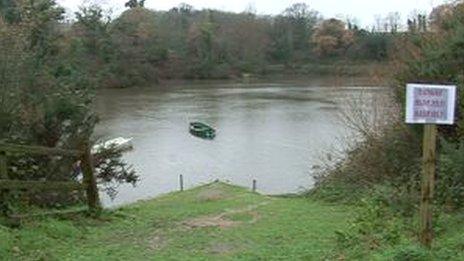Water meters mean higher bills for more than a third of consumers
- Published
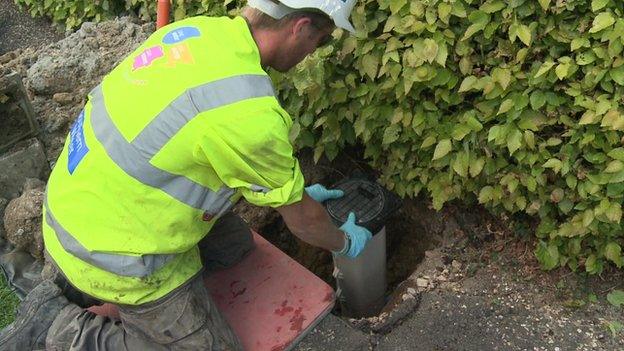
Half of all homes will have meters by spring 2015
The number of water meters installed in homes across England and Wales has risen above 10 million, as suppliers in drought prone areas in the South of England force their customers to accept them.
Many families find they are paying less, but more than a third are seeing significant increases and some people's bills are doubling.
Major companies, including Southern Water, Thames Water and South East water, are starting compulsory water metering.
The water industry expects that 50% of homes will have meters by spring next year.
Mark Phippen, from Hedge End near Southampton, told BBC News he had been warned his family's bill would nearly double, from £387 to £763 a year, after a meter was put in early in the year.
"We knew it would go up, but doubling the amount we pay was a bit of a shock," he said.
"It has an impact on our budgeting every month and it will cause us problems."
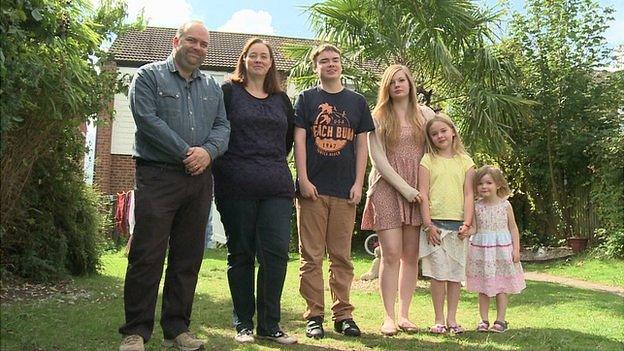
The Phippen's first metered water bill came as a bit of a shock
Save water, save money
The Phippens have four children so they are bound to use more water. Some of their neighbours, with fewer in the home, are celebrating because their bills are going down.
The local supplier, Southern Water, has calculated that 62% of households are better off with meters, saving £159 a year on average.
Currently, 38% are losing out, ending up £175 worse off on average. Because they can phase in the metered charge, they are likely to lose even more in the long run, unless they can cut down their use of water.
Southern Water is in the middle of a drive to install half a million compulsory meters. South East Water, Affinity and the biggest supplier, Thames Water, are just embarking on similar programmes.
Southern's director of communications, Geoff Loader, hopes the meters will encourage people to save water.
"You don't go to a garage and fill up an articulated lorry, and pay the same amount for your petrol as a family in a saloon," he says.
"We pay for what we use, and we're bringing that in for water use."
Mr Loader says if suppliers in water-stressed areas were not able to force customers to have meters, they would have to build more reservoirs and desalination plants, and pass those costs on to the public.
No paddling
Southern Water offers a changeover tariff, staging the introduction of metered charges over three years to soften the blow.
And it provides a benefits check for hard-pressed customers, along with advice on saving water.
The Phippen family in Hedge End is trying to economise, by making sure everyone turns off the tap while brushing teeth, banning the paddling pool this summer and reducing the washing up.
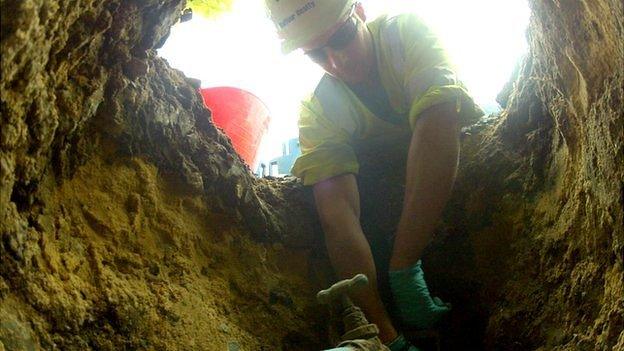
A hole in the road could signal a nasty surprise for the households nearby, as compulsory meters roll out
"Other things you can't cut down," says Mr Phippen.
"You need to bathe the kids, you need to wash the clothes. You simply can't use less for some things."
Compulsory metering is not yet an issue in the north and west of England or in Wales and Scotland.
Even so, hundreds of thousands of families will soon notice the road being dug up outside the home and a meter going in.
And many will face a shock when the new water bill arrives.
- Published7 April 2014
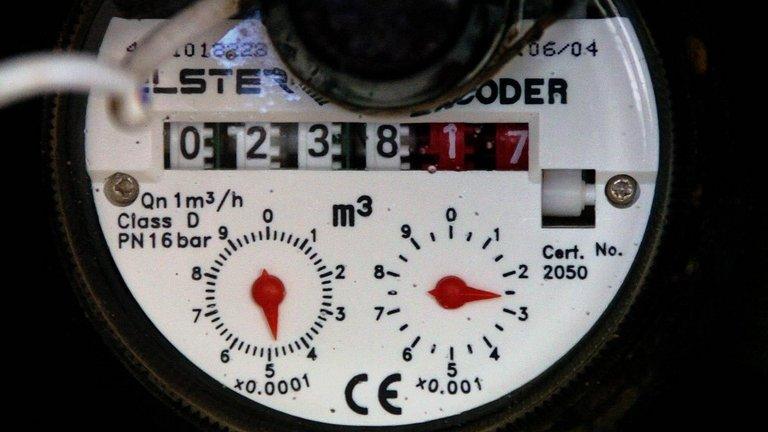
- Published22 January 2014
